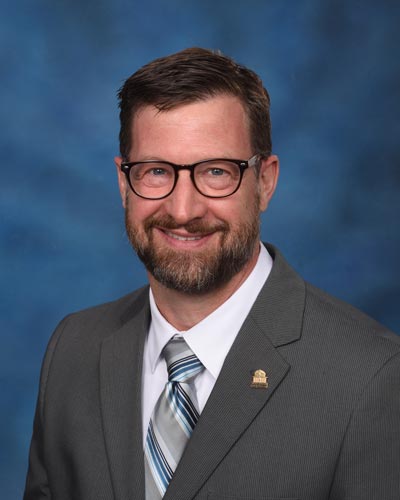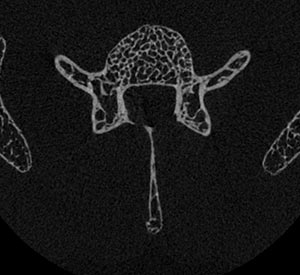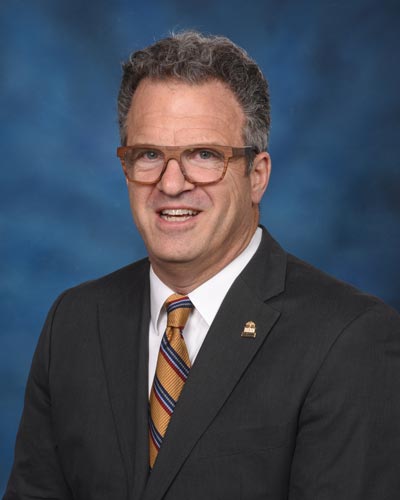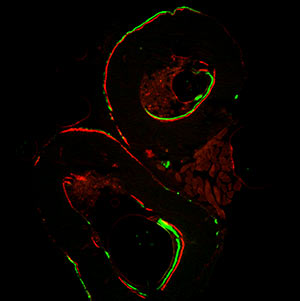March 19, 2024 | Lauren Wright

The Musculoskeletal Physiology Service Center is led by Joseph P. Stains, PhD, Professor of Orthopedics and Division Head of Musculoskeletal Science at UMSOM, along with Christopher W. Ward, PhD, Professor of Orthopedics at UMSOM, who specialize in bone and muscle physiology, respectively. Alongside them, affiliated investigators within the Division of Musculoskeletal Sciences provide additional specialized expertise in various facets of musculoskeletal research.
 Services include a comprehensive suite of phenotyping assays, ranging from in vivo body composition, neuromuscular function, muscle mechanics, and bone microarchitecture by microcomputed tomography, accompanied by more mechanistic outcomes including hard tissue histology, laser capture microdissection, histomorphometry, and mRNA-fluorescent in situ hybridization. By consolidating these resources, the Service Center will streamline access to cutting-edge techniques and foster interdisciplinary collaborations. Through past collaborative efforts, many partnerships have flourished resulting in numerous grant applications and publications focused on mechanisms underlying musculoskeletal health and disease.
Services include a comprehensive suite of phenotyping assays, ranging from in vivo body composition, neuromuscular function, muscle mechanics, and bone microarchitecture by microcomputed tomography, accompanied by more mechanistic outcomes including hard tissue histology, laser capture microdissection, histomorphometry, and mRNA-fluorescent in situ hybridization. By consolidating these resources, the Service Center will streamline access to cutting-edge techniques and foster interdisciplinary collaborations. Through past collaborative efforts, many partnerships have flourished resulting in numerous grant applications and publications focused on mechanisms underlying musculoskeletal health and disease.
 Dr. Stains envisions a hub for generating not only data but new grant ideas. “This Service Center represents a convergence of diverse skill sets and resources dedicated to advancing our understanding of musculoskeletal disorders,” said Dr. Stains. “By consolidating our expertise, we hope to provide researchers with access to state-of-the-art phenotyping techniques and analytical tools. The goals are to improve access to services and instrumentation, foster collaborations, and expand discoveries. Ultimately, these goals will improve funding for those interested in musculoskeletal biology.”
Dr. Stains envisions a hub for generating not only data but new grant ideas. “This Service Center represents a convergence of diverse skill sets and resources dedicated to advancing our understanding of musculoskeletal disorders,” said Dr. Stains. “By consolidating our expertise, we hope to provide researchers with access to state-of-the-art phenotyping techniques and analytical tools. The goals are to improve access to services and instrumentation, foster collaborations, and expand discoveries. Ultimately, these goals will improve funding for those interested in musculoskeletal biology.”
A forward-looking goal is to help investigators interested in other physiologic systems to obtain easy access to a front-line screen that can reveal unexpected musculoskeletal phenotypes and seed new research directions and funding opportunities.
 Dr. Ward highlights the collaborative nature of the Service Center, emphasizing its potential to spark interdisciplinary collaborations. “We have a wide base of collaborators from UMB and partnering institutions, interested in muscle or bone physiology. We envision the Service Center as just the beginning,” remarked Dr. Ward, “where researchers from various fields can converge to address complex questions in musculoskeletal biology.”
Dr. Ward highlights the collaborative nature of the Service Center, emphasizing its potential to spark interdisciplinary collaborations. “We have a wide base of collaborators from UMB and partnering institutions, interested in muscle or bone physiology. We envision the Service Center as just the beginning,” remarked Dr. Ward, “where researchers from various fields can converge to address complex questions in musculoskeletal biology.”
With its cutting-edge resources and collaborative ethos, the Musculoskeletal Physiology Service Center will catalyze collaboration and expand research programs across the campus and beyond.
The Service Center’s directors encourage interested researchers to schedule a meeting with them to discuss the detailed scope of all projects. Trained and approved users can reserve the use of instrumentation via the School of Medicine’s iLab Portal. Note that a full listing of Shared Research Resources that is available to investigators can be found on the CIBR website.
Contact
Lauren Wright
Public Affairs/Community Health Specialist
Managing Editor, SOM News
Office of Public Affairs & Communications
University of Maryland School of Medicine
LaurenWright@som.umaryland.edu
Office: 410.706.7508
